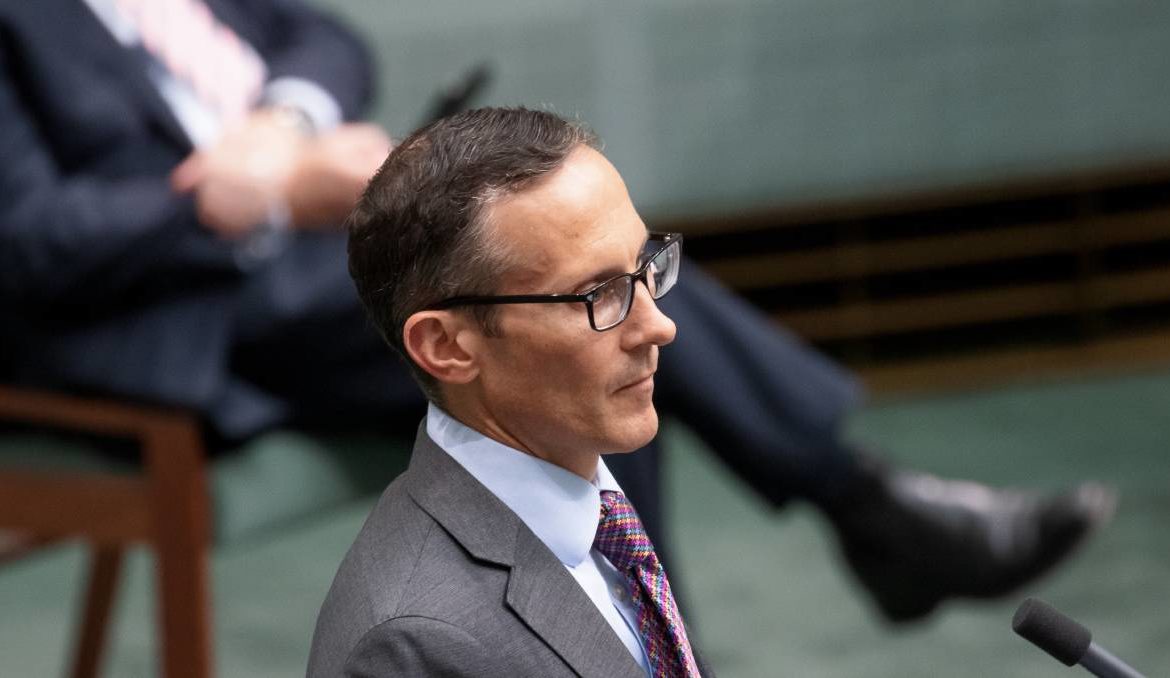news, business,
More than $125 million in JobKeeper wage subsidies will be handed back to the federal government, as calls grow for the repaid funds to be redirected to sectors still crippled by the pandemic. Some of Australia’s largest publicly listed companies have chosen to voluntarily return millions of dollars in taxpayer-funded subsidies after turning a profit in the past year. Under the first phase of the JobKeeper program, businesses were eligible to receive subsidies if they were anticipating at the outset of the pandemic that turnover would “likely” fall substantially. But the forecast downturn didn’t eventuate for all companies, meaning some were receiving government handouts while business was booming. Labor’s assistant treasury spokesman Andrew Leigh has led calls for profit-making companies to repay their JobKeeper, as part of his broader campaign against the misuse of the wage subsidy program. Dr Leigh has been monitoring annual reports and companies’ public statements in recent weeks, applauding businesses who have elected to hand back subsidies and condemning those who haven’t. Some 15 companies had repaid a total $125 million in wage subsides as of Thursday, according to Dr Leigh’s analysis. Cochlear, a Sydney-based company which manufacturers cochlear implants, has made the largest repayment so far, handing back $24.6 million. Multinational contractor CIMIC has repaid $20 million. Resources firm Iluka has returned $13.6 million, while ports operator Qube is repaying $17 million of the $30 million it received under the scheme. Not all 15 companies on Dr Leigh’s list have repaid all of the subsidies they received at the height of the crisis. The analysis comes after sole trader Raed Saleh this week became the first person convicted for rorting the JobKeeper program. Dr Leigh welcomed the conviction, but said the federal government should turn its attention to “the big end of town”. “We passed $100 million [in repayments] this week, which is significant, but is still only about 0.1 per cent of the nearly $100 billion that the government anticipates spending on the scheme. “The government could get a lot more repayments if it was willing to be as tough with large firms misusing JobKeeper as it is with sole traders.” Dr Leigh has also backed calls from ACT Chief Minister Andrew Barr for the repaid subsidies to be used to support struggling industries after JobKeeper ceases on March 28. “Absolutely [they should be redirected],” Dr Leigh said. “We certainly need more support for sectors like higher education and tourism.” The Canberra Times has contacted Treasurer Josh Frydenberg’s office for comment. Mr Frydenberg this week indicated the federal government would provide ongoing assistance to sectors still affected by Australia’s international tourism ban. But Mr Frydenberg insisted the support would need to be proportionate, temporary and “accompanied by an exit strategy”. Our journalists work hard to provide local, up-to-date news to the community. This is how you can continue to access our trusted content:
/images/transform/v1/crop/frm/znhWFHRUTrpRC32tGqnZkk/d2477631-57e5-48d8-8335-f38b010ada5a.jpg/r0_259_5088_3134_w1200_h678_fmax.jpg
More than $125 million in JobKeeper wage subsidies will be handed back to the federal government, as calls grow for the repaid funds to be redirected to sectors still crippled by the pandemic.
Some of Australia’s largest publicly listed companies have chosen to voluntarily return millions of dollars in taxpayer-funded subsidies after turning a profit in the past year.
Under the first phase of the JobKeeper program, businesses were eligible to receive subsidies if they were anticipating at the outset of the pandemic that turnover would “likely” fall substantially.
But the forecast downturn didn’t eventuate for all companies, meaning some were receiving government handouts while business was booming.
Labor’s assistant treasury spokesman Andrew Leigh has led calls for profit-making companies to repay their JobKeeper, as part of his broader campaign against the misuse of the wage subsidy program.
Dr Leigh has been monitoring annual reports and companies’ public statements in recent weeks, applauding businesses who have elected to hand back subsidies and condemning those who haven’t.
Some 15 companies had repaid a total $125 million in wage subsides as of Thursday, according to Dr Leigh’s analysis.
Cochlear, a Sydney-based company which manufacturers cochlear implants, has made the largest repayment so far, handing back $24.6 million.
Multinational contractor CIMIC has repaid $20 million.
Resources firm Iluka has returned $13.6 million, while ports operator Qube is repaying $17 million of the $30 million it received under the scheme.
Not all 15 companies on Dr Leigh’s list have repaid all of the subsidies they received at the height of the crisis.
Treasurer Josh Frydenberg Picture: Dion Georgopoulos
Dr Leigh welcomed the conviction, but said the federal government should turn its attention to “the big end of town”.
“We passed $100 million [in repayments] this week, which is significant, but is still only about 0.1 per cent of the nearly $100 billion that the government anticipates spending on the scheme.
“The government could get a lot more repayments if it was willing to be as tough with large firms misusing JobKeeper as it is with sole traders.”
“Absolutely [they should be redirected],” Dr Leigh said. “We certainly need more support for sectors like higher education and tourism.”
The Canberra Times has contacted Treasurer Josh Frydenberg’s office for comment.
But Mr Frydenberg insisted the support would need to be proportionate, temporary and “accompanied by an exit strategy”.
Our journalists work hard to provide local, up-to-date news to the community. This is how you can continue to access our trusted content:







